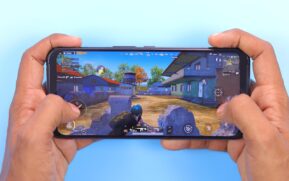
The mobile gaming industry is currently navigating significant challenges, including legal disputes and strategic acquisitions, as companies adapt to evolving market dynamics.
In India, the online gaming sector faces a pivotal moment as A23, a prominent gaming company, has initiated the first legal challenge against the government's recent ban on money-based online games such as poker and rummy. The ban, implemented by Prime Minister Narendra Modi's administration, has led to the abrupt shutdown of popular gaming platforms and poses a threat to an industry projected to reach $3.6 billion in India by 2029. A23's petition to the Karnataka High Court argues that the law criminalizes skill-based games and is unconstitutional, claiming it undermines legitimate businesses under the guise of combating gambling, which is already heavily restricted in India. Other major gaming platforms, including Dream11 and Mobile Premier League, have ceased money-based games following the ban but have chosen not to challenge the law legally. Dream11 reports that the ban erased 95% of its revenue overnight. The Indian government defends the ban, citing concerns over addiction and its moral duty to combat "social evils." A23, with over 70 million users, contends that the law could force many gaming companies to shut down.
In the United States, the mobile gaming landscape is witnessing a resurgence, exemplified by Take-Two Interactive's recent performance. The company's stock surged 3.5% following a strong forecast indicating a rebound in the mobile gaming industry after a post-pandemic downturn. This optimism is bolstered by Take-Two's 2022 acquisition of Zynga for $12.7 billion. The company reported a 17% increase in bookings for its fiscal first quarter, driven by successful mobile titles like "Match Factory," "Color Block Jam," and "Toon Blast." CFO Lainie Goldstein noted growing momentum in key games, particularly since late last year. Analysts at TD Cowen highlighted that such forecast upgrades are rare, suggesting robust mobile performance. The mobile gaming sector itself is recovering, supported by increasing in-app revenue, which reached $81.7 billion in 2024. Beyond mobile, Take-Two is set to launch major titles such as "Mafia: The Old Country," "Borderlands 4," and the highly anticipated "Grand Theft Auto VI," all expected to achieve strong sales. Experts believe these releases, coupled with mobile growth, position Take-Two for continued success.
Strategic acquisitions are also reshaping the mobile gaming industry. In a significant move, Saudi-owned game developer Scopely acquired Niantic's gaming division, including the highly successful "Pokémon Go," in a $3.5 billion deal. This acquisition is expected to close later in 2025 and will bolster Scopely's total audience to over 500 million players. Niantic plans to focus on developing geospatial AI technologies through its new venture, Niantic Spatial, while continuing to collaborate with Scopely. This deal aligns with Saudi Arabia's strategy to become a global gaming hub, led by Crown Prince Mohammed bin Salman, which includes large investments and fostering local gaming industries and job creation. The kingdom has also engaged in eSports, hosting major tournaments and planning future events, including the first Olympic Esports Games in 2027.
Similarly, Tripledot Studios, the London-based creator of mobile games like "Woodoku" and "Solitaire.com," is acquiring AppLovin’s gaming division for $800 million. The deal includes a $400 million equity stake taken by AppLovin in Tripledot and is funded through both cash and debt, valuing Tripledot at around $2 billion. Through this acquisition, Tripledot gains 10 studios and popular titles like "Matchington Mansion" and "Game of War," boosting its annual gross revenue to nearly $2 billion and its daily active users to over 25 million. This positions Tripledot among the largest independent mobile game companies globally, alongside Dream Games, Moon Active, and Playrix. AppLovin, focusing on its core advertising technology business, is exiting game development. The mobile gaming sector, which experienced growth during the pandemic, has recently slowed, with a 6% decline in downloads last year due to oversaturated app stores. Despite these headwinds, Tripledot has thrived by leveraging advertising-driven revenue and a diverse game portfolio. With the acquisition, the company plans to further invest in AI to enhance development efficiency. In contrast, AppLovin has faced scrutiny from short sellers over alleged exaggerations in its ad technology, which it denies, and has initiated an investigation into these claims.
These developments underscore the dynamic nature of the mobile gaming industry, characterized by legal challenges, strategic acquisitions, and a resurgence in market performance. As companies navigate these changes, the industry's future will depend on innovation, regulatory responses, and the ability to adapt to evolving consumer preferences.
77 People Are Viewing This News Right Now



